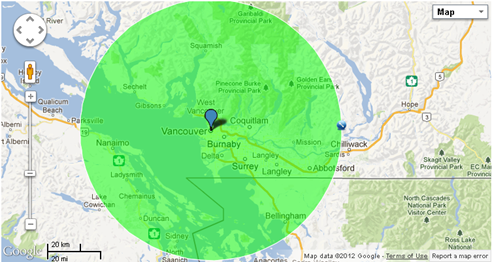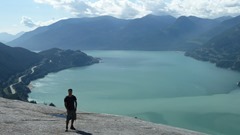In its article dated December 13, 2012, the Toronto Star was asking why do people hate Justin Bieber. That came following the revelation of a plot to murder (!) Bieber.
Finally an interesting question to ponder with.
I’ll start by saying that the plot to murder Mr. Bieber is insane, backward, unacceptable and is a terrible thing to read about. While I certainly am not Justin Bieber’s fan – not even in the slightest – it doesn’t matter what you think about the person and/or the music he is performing, plotting to murder the youngster is just plain wrong. I hope the people who were charged with this will be brought to trial, and if found guilty, will receive the maximum punishment allowed by Ontario’s law.
As I wrote above, I am not a fan of Justin Bieber’s music. With regards to Bieber’s person, I can’t say I hate him (or love him) for the mere fact that I don’t know him. As a matter of fact, I consider prying into strangers’ personal lives – whether they are celebrities or not – as an excellent exercise in wasting precious time.
Still, I have my own opinion as to why Bieber is so disliked. My opinion is that there are a few reasons for this, most of which have nothing to do with Bieber’s personality.
Reason 1: The Person
No, driving a $100,000 car through the streets of Los Angeles doesn’t (or at least shouldn’t) render Bieber a subject of hate. Jealousy? maybe. Hate? definitely not.
People who hate Bieber because of his wealth are living in denial. Luck has it upon our society and we live in a capitalist one. Bieber rides his vehicle and treats it exactly the same way that I treat my 1998 Honda Accord, or the way that you treat your 2008 Ford Focus. $100,000 for Bieber is what $50 are to you and me. It’d be safe enough to assume that, of those who hate Bieber because of his wealth, I could find close to zero who would refuse being as rich as Bieber is.
So yes, it is OK to be jealous. Most people in the world would have liked the idea of not having to work 9 to 5 jobs for the sake of survival; but it is what it is. Whoever you are, there’s someone else who’s richer than you are, and if not – then there’s some else who aspires to be as rich as you are. But to actually hate the guy for his wealth? give me a break.
That being said, disrespect may be in order. On that front, I can’t help but reminiscing over Viktor Frankl’s immortal “Man’s Search for Meaning”, where he claims that freedom and responsibility go hand in hand. People would respect Bieber much more, had he put his immense financial & influential resources towards good use. And no, replying over Twitter to someone about supporting organ donations is not enough; neither is supporting all sorts of charities.
We’d prefer to see Bieber to more than just saying “OK” to his PR folks when they ask him whether he’s interested in donating to a certain charity. We’d prefer to see some active, personal involvement for good cause. Bieber is 18 years old, with his entire life in front of him; now is the time to be personally involved in something good for humanity’s sake, in a way that risks a bit more than his chequebook.
Other people claim they “hate” Justin Bieber because he has a negative impact on culture. This I’m not sure I agree with. Many decades ago, The Beatles weren’t welcome in the USA for this very same reason. What seems like “negative impact” today, may as well be perceived as “positive impact” years from now. It is too early, in my opinion, to judge Bieber’s case at the moment.
Reason 2: The Music Industry & Dehumanization
This one has little to do with Bieber’s personality, and has everything to do with the music industry.
Something terrible is going on with the music industry as a whole, which can be explained by the very existence of this very term, “music industry”. Music became an industry. Not that it wasn’t an industry before, of course; but still, you have to be living under a really heavy rock in order to not realize that the race towards money and fame seems to drive more artists nowadays than it did 50 years ago.
Can you seriously compare today’s Justin Bieber; or the various sorts of gangster-wannabe rappers; or the forcibly-provocative figures such as Nicki Minaj; or the forcibly-extravagant of… well, too many names I could place here and I prefer to insult them all equally so I’ll avoid naming names – can you compare those to Bob Dylan? John Lennon? Mark Knopfler (well, you saw this one coming, didn’t you)? Robert Plant? Freddie Mercury? Eddie Vedder? Pink Floyd?
You can’t. It’s not that the latter group isn’t (or wasn’t) popular. It’s simply that the latter group is a group of musicians, and the former group (Bieber et al) are a group of PR machines.
Can you compare any of Justin Bieber’s lyrics to, say, this?
The captain, barely breathing, kneeling at the wheel
Above him and beneath him fifty thousand tons of steel
He looked over at his compass, and he gazed into its face
Needle pointing downward, he knew he lost the raceIn the dark illumination he remembered bygone years
He read the Book of Revelation, and he filled his cup with tears
When the Reaper's task had ended, sixteen hundred had gone to rest
The good, the bad, the rich, the poor, the loveliest and the best(from Bob Dylan’s “Tempest”, 2012)
The above is not even an old song. It’s brand new, 2012, from Dylan’s last album “Tempest”, telling in an extraordinarily beautiful words the story of the Titanic sinking.
I think you see my point already. The popularity of musicians today – much of which is controlled by the media – is very loosely correlated to those musician’s actual contribution to the music world. Neither Bieber, nor Minaj, nor Lady Gaga, nor… well, nor pretty much any “current” PR machine could never, ever, exhibit even a tad of Dylan’s songwriting skills.
So what’s happening here? there’s a group of people – who, personality-wise, might otherwise be really great, who knows – who are being nicely wrapped by money-making PR businesses who dehumanize them and provide them to us, the music consumers, as products. We’re having the product shoved into our faces (and our ears), touting the product’s worthiness based on criteria that has nothing to do with music (for example: being handsome; being sexy; being sensational; being rich) – and that’s when the Halo Effect and Attribute Substitution kick in.
The Halo effect and Attribute Substitution are two psychological phenomena that are so profoundly common that I can hardly imagine any PR machine not basing itself upon them. Read about them and you should be able to figure things out.
I guess that what I’m saying is, that the mass disrespect towards Bieber might actually have something to do with the fact that the amount of PR attention that he receives is completely and utterly disproportional to his contribution to culture in general, and music in particular.
Reason 3: Reward for Hard Work?
Most people still associate “reward” with “hard work”. Be honest with yourselves: who amongst us hasn’t been told repeatedly during their childhood years, that good things come to those who work hard? that reward and hard work are intertwined and inseparable?
It can be understood, then, why most people exhibit a fair bit of frustration when they witness that there are exceptions to this rule. In that respect, there isn’t much difference between the disrespect people feel towards Bieber and the disrespect certain people feel towards the Royal Family, for example. I admit to belong to that group: while I am not in the position where I struggle for my existence, I still find it frustrating, at times, to witness people getting rewarded for doing very little.
We encounter such frustration whenever we identify a gap between someone’s perceived intrinsic value and their reflected value. In other words, we tend to exhibit negative feelings towards people who we perceive as having put very little effort into being successful, and at the same time being extraordinarily rewarded for it.
That, however, isn’t Bieber’s problem. The world is ever-changing; values that used to hold true before, aren’t necessarily holding true nowadays. In today’s day and age, reward and hard work aren’t tightly correlated as before. You really don’t need much intrinsic value to become rewarded, especially when you correlate “reward” with “money”. To become rich, you don’t necessarily have to work hard – at least not as hard as you’d have to work 30 or 40 years ago.
Signing off this post while Bob Dylan’s “Tempest” still rings in my ears.
Isaac











![463540_10150784355842073_561867072_10130560_383510088_o[4] 463540_10150784355842073_561867072_10130560_383510088_o[4]](http://lh5.ggpht.com/-Y__pjSR5YJk/UjAB268hvOI/AAAAAAAAfPk/I2egC8mamQo/463540_10150784355842073_561867072_10130560_383510088_o%25255B4%25255D_thumb%25255B1%25255D.jpg?imgmax=800)
![398745_10150557821247073_437174498_n[4] 398745_10150557821247073_437174498_n[4]](http://lh4.ggpht.com/-R90lhX1yKio/UjAB30rASZI/AAAAAAAAfP4/ntOjohp6M_8/398745_10150557821247073_437174498_n%25255B4%25255D_thumb%25255B1%25255D.jpg?imgmax=800)